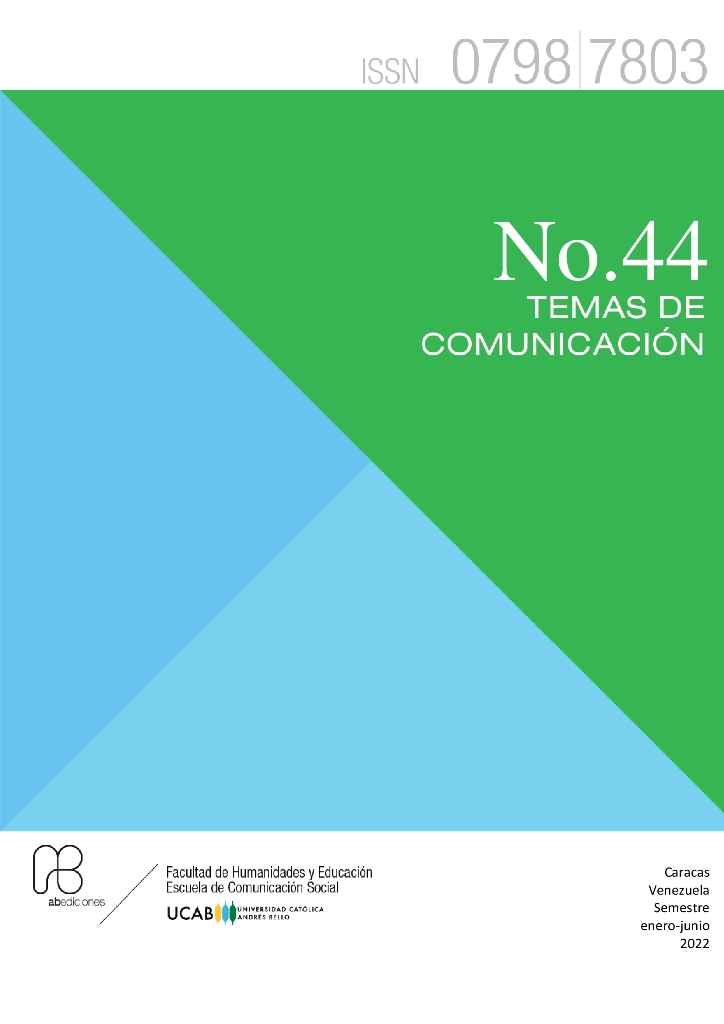In times of hypercommunication being with yourself? Reflections on the fall of social networks: Facebook, Instagram and Whatsapp.
DOI:
https://doi.org/10.62876/tc.vi44.5629Keywords:
Technologies, Internet, digital social networks, critical digital literacy, hypercommunicationAbstract
On October 4, 2021, Facebook, Instagram and Whatsapp crashed worldwide. It took Facebook about 7 hours to restore access to its applications and services, during which time it became evident not only the role played by these technologies, but also the anxieties and attachments for not "being connected". This article will address the structuring role played by technologies and social networks, and the implications for the subject of these disconnections, when these virtual others are not online. Critical digital literacy is proposed as a central area for the education of citizens in complex environments.
Downloads
References
Alonso Á. (2019). Homo zombie u homo zapping: una disyuntiva de nuestro tiempo. Revista Dikaiosyne N° 34. pp. 5-20.
Burgos, E. (2014). Los flashmobs: entre el entretenimiento y el ciberactivismo. Consejo de Desarrollo Científico y Humanístico. Universidad Central de Venezuela.
Castells, M. (2003). La galaxia Internet. Debolsillo.
----------------------- (2009). Comunicación y poder. Alianza.
Cobo, C. (2019). Acepto las Condiciones: Usos y abusos de las tecnologías digitales. Fundación Santillana.
Colina, C. (2000). Comunicación: sistemas tecnológicos en la flecha del tiempo. En revista: Diálogos de la Comunicación. Nº 57. Federación Latinoamericana de Facultades de Comunicación Social (FELAFACS), pp. 96-109.
http://es.scribd.com/doc/61170639/57-09CarlosColinacomunicaionsistemastecnologicos
Gergen, K. (2006). El yo saturado. Dilemas de identidad en el mundo contemporáneo. Paidós.
Han, B-C. (2014). En el enjambre. Herder Editorial.
----------------------- (2021). No-cosas. Quiebras del mundo de hoy. Taurus.
Haraway, D. (1995). Ciencia, cyborgs y mujeres. La reinvención de la naturaleza. Ediciones Cátedra.
Perales, O. (2008). Esfera pública y medios electrónicos. Razón y Palabra. N° 61. http://www.razonypalabra.org.mx/anteriores/n61/varia/operales.html.
Tirado, F. y Gálvez, A. (2002). Comunidades virtuales, ciborgs y redes sociotécnicas: nuevas formas para la interacción social. En: Revista Digital d´ Humanitats. Universitat Oberta de Catalunya.
http://www.uoc.edu/humfil/articles/esp/tiradogalvez0302/tiradogalvez0302.html
Radio Caracas Radio [@RCR750]. (04 de marzo de 2022). Embajador James “Jimmy” Story: Hoy, muchos estadounidenses inician el Día Nacional de Desconexión, un período de 24 hrs para desconectarse [Tuit] [Imagen adjunta]. Twitter. https://twitter.com/RCR750/status/1499787250820956166
Villamil, J. (2017). Rebelión de las audiencias. De la televisión a la era del trending topic y el like. Penguin Random House Grupo Editorial.
We are social y Hootsuite. (2022). Informe Digital. https://www.hootsuite.com/es/recursos/tendencias-digitales-2021
Downloads
Published
How to Cite
Issue
Section
License
Copyright (c) 2022 Temas de Comunicación

This work is licensed under a Creative Commons Attribution-NonCommercial-ShareAlike 4.0 International License.


